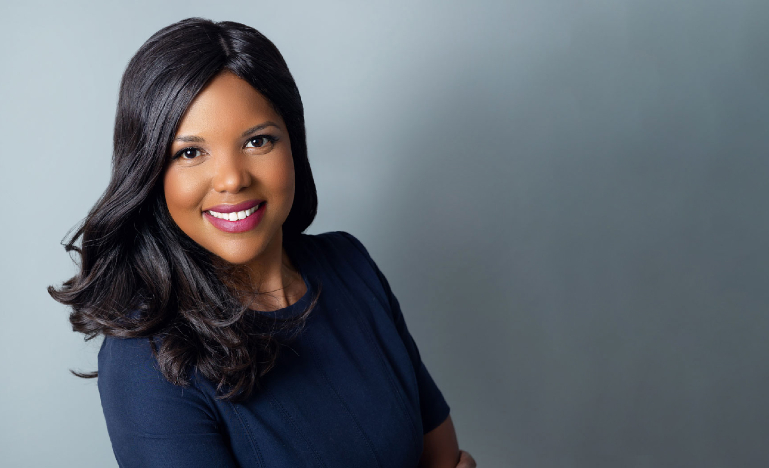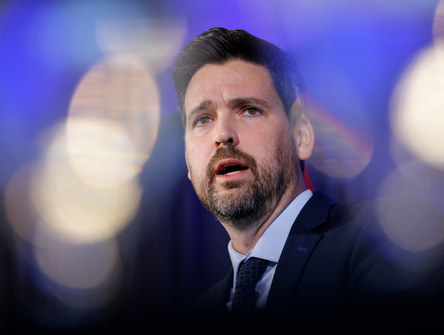Changing careers in law
Alternative careers have always existed in the legal profession. It's just that lawyers have way more freedom today to do what they really want.

Randi Bean knew early on that she needed to find an alternative career. After being called to the Bar in 1996, she started working at a small criminal law firm. It wasn't for her. The problem was she couldn't find resources to help her find the next job.
"At that time, it was a new concept," says Bean. "Alternative careers have always existed, but it wasn't the common next step after practice. I wanted to help people pursue other careers."
Her curiosity and enthusiasm to discover where else a law degree could lead her landed her in a contracts manager position at a large manufacturing company. She then moved on to become a recruiter at an HR consulting firm before starting her own recruiting firm in 2003 at Life After Law.
What was once considered "alternative" — working in-house or doing something outside of law — is no longer uncommon. Lawyers now have much more freedom to pursue various career paths, even in private practice by taking on different roles.
"Potential employers see the value of lawyers," says Bean. "It's now more accepted for lawyers to be in different roles compared with years ago."
People decide to take a different path for different reasons. Some decide early in their career that the traditional practice of law isn't right for them. Others go through law school hoping to springboard into another field without any real design to make a career as a pribate practitioner. Then there are those who set out to pursue a "traditional" career and work in a big law firm, only later to discover they need a change to suit their lifestyle. Some firms have tried to accommodate those people by offering something different than the traditional partnership route. There are practitioners who covet the role of counsel with no expectation to bring in business.
"Some big firms have accommodated for lifestyle, for example, reduced work hours," says Bean. "However, this may not be sufficient for everyone."
Then there are lawyers who have practised law for 15 to 20 years and want to transition into something entirely different. For them, the first step is often to take on an in-house counsel position, but there are other ways to pivot. "For a patent lawyer, you can move to IP management at a pharmaceutical company," says Bean. "For an employment lawyer, moving to an HR management position can be a natural progression in the business world. There are options."
Mante Molepo never imagined she would take a detour in her legal career. Growing up, she knew what she wanted to be: a human rights lawyer. Her father spoke about Nelson Mandela in their family home in South Africa. After her father was exiled for speaking out against apartheid, Molepo's family settled in Canada.
"I was engaged in human rights and advocacy," says Molepo. "I was inspired by my father, who had dedicated his life to advocating against injustice and was committed to women's rights. My dad was the first feminist I knew."
So when it came time to go to law school, Molepo decided to think outside the box and focused on getting articles with the federal government instead of private practice. Part of her articling year in 2007 was spent in a secondment at the Competition Bureau and working at the World Trade Organization.
Eventually, Molepo made her way to Global Affairs Canada, where she practised international trade law. But by 2014, Molepo felt the job was beginning to conflict with her family life.
"I had a young family, and there were those little incidents where you apply for promotions, but you don't get there and there was conflict between having my family and the job," says Molepo.
At the same time, her children were experiencing anti-Black racism at their school. Molepo confided in her former law school classmate Julia Nicol about this issue. As the two took a long walk after work, they both decided it was time to take action. In 2016, along with other parents, they started Parents for Diversity in 2016, a nonprofit organization committed to achieving equitable and inclusive education for all students.
"My daughter was not seeing herself represented at school, and it was having an impact," says Molepo. "Parents didn't know how to navigate the education system. Through Parents for Diversity, we work with parents and school boards to address the systemic barriers students face."
In 2019, Molepo took a leave of absence to work as an equity and diversity advisor for the Ottawa Catholic School Board. She moved into consulting full-time and, in January 2020, launched Mante Molepo Consulting, where she works with boards and senior management on diversity and inclusion initiatives. Recently she was named the 2022-2023 Ontario Bar Association Innovator-in-Residence, where she will lead the association's new career accelerator program for Indigenous and radicalized lawyers.
"Since I only wanted to practice international trade law, I thought I would spend my entire career in the public service," says Molepo. "But my work with Parents for Diversity led to new professional opportunities, which changed my career trajectory."
It's no secret that the great pandemic disruption of the last couple of years has led many people to reconsider the way their lives at work. This has prompted major shifts in the job market. In the United States, the Great Resignation saw millions of Americans quit their jobs.
"In my 23 years of experience working in recruitment, this is the strongest candidate market I have ever seen," says Bean, adding that the pendulum will eventually swing back to the employers.
But if you're looking to find a new position, now is still a good time to start.
"Know your value and recognize what you need and what you want," says Bean. "I strongly recommend working with a recruiter. It's complicated. The nature of the roles and compensation can be vastly different. Candidates need to decide what is important and how it impacts their career development."
Be aware of quick turnaround times. In this competitive job market, candidates and employers find the recruitment cycle going faster than usual. The typical three rounds of interviews can be replaced by one meeting with several senior managers. "Sometimes the process moves faster for candidates than what they anticipated," says Bean.
The most important thing you need in your search is to know who you are and be open to trying something new. Molepo knew she wanted to be involved in human rights issues in her career regardless of whether she was practising law.
"The decision to no longer practice law is a challenging one for many people, including me," says Molepo. "However, the skills I developed as a lawyer continue to serve me today."


